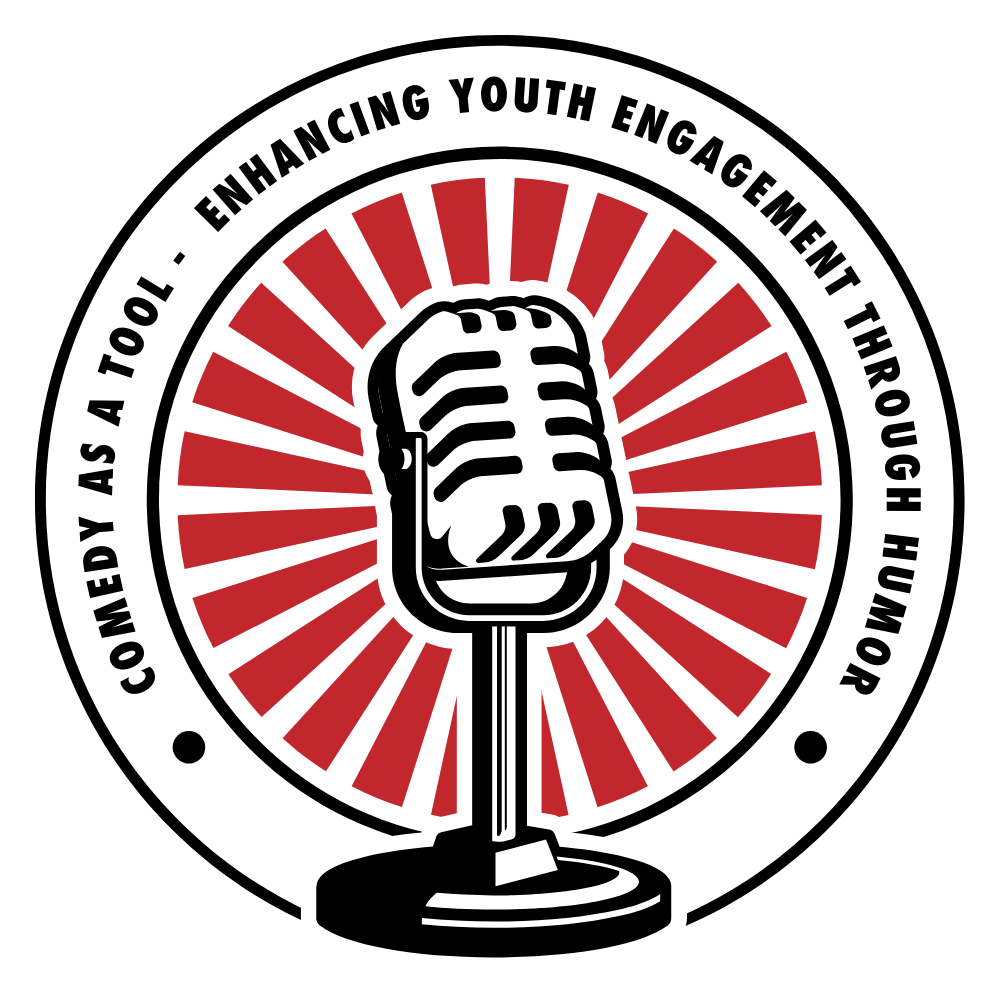
The project “Comedy as a Tool – Enhancing Youth Engagement through Humor” is a mobility of youth workers – training course that will involve 26 youth workers, youth leaders and trainers from N. Macedonia, Bulgaria, Greece, Serbia, Turkiye, Slovenia, Romania and Poland.
We have recognised that in our youth work, we are facing the problem of how to transfer important complex ideas and concepts to young people we work with in a simple, visual and easily comprehensible way. Many topics, workshops, and presentations are emotionally challenging for young people, because they are too serious for them to process and engage with. Some concepts, for example, the social inclusion of disadvantaged groups, are important for youngsters to grasp and understand, but they often seem too abstract for them. So, when activities on important topics are presented to young people, often they are not interested, or if they attend them, they are not paying full attention. That’s why, if we want to have high-quality workshops and impactful, effective activities, we must make those abstract ideas more visual, more fun, interesting and memorable for the young people attending them.
Here comes into play humor and how it is used in stand-up comedy storytelling. Humor is an amazing tool for creating a light-hearted, playful and relaxed atmosphere. Humor is a great way to break the ice with an audience, keep them interested, and ensure that the presentation is memorable. With humor, people are at ease, more open and energized to discussion and more willing to consider new ideas and perspectives.
The idea of this project is not to make the youth workers professional stand-up comedians but to give them guidelines on how to cultivate their sense of humor, communicate better their ideas, explain easier complex concepts and how to create captivating activities for the young people they work with. The project will help the involved youth workers to understand better what stand-up comedy is, how to use humor in a well-structured manner and to give style in the delivery of different important ideas and concepts to young people. The youth workers will learn and practice different competencies and methods of communication and facilitation.
The main aim of the project is to improve the competencies and quality of the youth work of 24 youth workers in the fields of communication, facilitation, and youth engagement by using non-formal educational methods and stand-up comedy techniques.
PROJECT OBJECTIVES:
- To improve the communication skills (verbal and non-verbal) of youth workers, including public speaking, presentation, persuasion, negotiation, articulation and active listening
- To facilitate the exchange of good practices, methodological approaches and resources for youth work, communication and facilitation between the participants and organisations
- To introduce the basic principles, elements and features of humor and stand-up comedy as well as different strategies, techniques, and practical tips for developing and performing them
- To learn and practice ways of how humor and stand-up comedy can be used by youth workers in improving young people’s engagement or addressing social issues
- To improve the skills of participants to plan, develop, facilitate and evaluate non-formal learning activities and methods for improving young people’s engagement in social issues and/or personal, professional and social development.
- To strengthen the cooperation and networking between involved organisations by providing an opportunity for partnership-building
- To promote the recognition and validation of competencies and experience through NFE by learning about and using the Youthpass certificate and its key competencies framework
- To raise awareness about the Erasmus+ programme and opportunities it provides to youth workers and young people in key competencies development and addressing social issues
METHODOLOGY:
The training course will use methods that are based on non-formal and experiential education in order to provide all the participants with the information needed to enhance their learning process, but also in order to create an inclusive and learner-centered learning environment. Methods that will be used will include: getting to know each other, ice-breakers and team building, energizers, discussions, debates, working in groups, learning-by-doing activities, peer-to-peer work, simulations, presentations, analysis and comparison, theatre and role-playing, personal and group reflections, open-space and outdoor activities.
The project “Comedy as a Tool – Enhancing Youth Engagement through Humor” is funded by the Erasmus+ programme of the European Union through the Key Action 1: Mobility of youth workers and granted by the Macedonian National agency for European educational programs and mobility.

